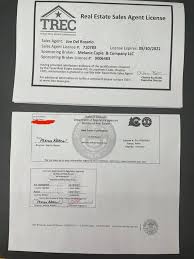
A professional agent should be hired if you intend to rent a house. An agent will help you to find the right apartment or property and negotiate on your behalf. They can also answer any questions that may arise during the process.
Real estate agents for renting houses charge a fee for their services, which is usually a percentage of the total annual rent, or less than 15%. The commission is split equally between the brokerage as well as the agent. This should be arranged in writing before beginning to search for an apartment.
Renting agents are often able to advertise and show rentals, sometimes with flexible schedules. They can help with the screening process as well as follow-up with potential tenants. They can also help with the creation and maintenance of a lease agreement. The agreement should contain all the details like how long you plan to live there, how often you'll pay it, and what the property's use rules are.
It's crucial to find an agent with strong experience in renting apartments. They will be familiar with the market and the types of buildings that have the most tenants. They can also recommend suitable places for you.

You can ask your friends to give you recommendations for reliable agents who know the market. They might have worked with a real estate agent who works with apartments, or they might know of an agent who isn't specialized in this area but is still a good choice for your search.
Online search is a great way to start your search. You can find reliable, reputable online directories that will connect you with the right agent to help you rent an apartment. Some of the best options are FastExpert and Zillow.
Finding a rental property is difficult, especially for those who aren't familiar with the area. A good rental agent will have access to a wide range of resources, including a database of available apartments and a network of landlords who might be able to offer you a better deal.
They'll also know what kind of tenant to target, and can help you find people who are likely to pay the monthly rent on time, keep the property clean, and take care of any repairs that need to be done.
There are many other requirements that agents must meet, including rent control laws and international tenants.

Hiring an agent has other benefits. Agent fees can be tax-deductible in certain markets. This could save you money over the long term.
You can also get a tax deduction for the fees rental agents charge. They can also assist you in drafting a lease agreement that complies with all local and state regulations.
FAQ
Can I afford a downpayment to buy a house?
Yes! Yes. These programs include government-backed loans (FHA), VA loans, USDA loans, and conventional mortgages. More information is available on our website.
Do I need flood insurance?
Flood Insurance protects against damage caused by flooding. Flood insurance can protect your belongings as well as your mortgage payments. Learn more about flood coverage here.
What are the three most important factors when buying a house?
When buying any type or home, the three most important factors are price, location, and size. The location refers to the place you would like to live. Price is the price you're willing pay for the property. Size refers how much space you require.
Statistics
- Some experts hypothesize that rates will hit five percent by the second half of 2018, but there has been no official confirmation one way or the other. (fortunebuilders.com)
- 10 years ago, homeownership was nearly 70%. (fortunebuilders.com)
- It's possible to get approved for an FHA loan with a credit score as low as 580 and a down payment of 3.5% or a credit score as low as 500 and a 10% down payment.5 Specialty mortgage loans are loans that don't fit into the conventional or FHA loan categories. (investopedia.com)
- Based on your credit scores and other financial details, your lender offers you a 3.5% interest rate on loan. (investopedia.com)
- The FHA sets its desirable debt-to-income ratio at 43%. (fortunebuilders.com)
External Links
How To
How to manage a rental property
While renting your home can make you extra money, there are many things that you should think about before making the decision. These tips will help you manage your rental property and show you the things to consider before renting your home.
This is the place to start if you are thinking about renting out your home.
-
What is the first thing I should do? Before you decide if your house should be rented out, you need to examine your finances. You may not be financially able to rent out your house to someone else if you have credit card debts or mortgage payments. It is also important to review your budget. If you don't have enough money for your monthly expenses (rental, utilities, and insurance), it may be worth looking into your options. This might be a waste of money.
-
What is the cost of renting my house? The cost of renting your home depends on many factors. These include factors such as location, size, condition, and season. Prices vary depending on where you live so it's important that you don't expect the same rates everywhere. Rightmove estimates that the market average for renting a 1-bedroom flat in London costs around PS1,400 per monthly. This means that if you rent out your entire home, you'd earn around PS2,800 a year. While this isn't bad, if only you wanted to rent out a small portion of your house, you could make much more.
-
Is it worth it? Doing something new always comes with risks, but if it brings in extra income, why wouldn't you try it? Before you sign anything, though, make sure you understand exactly what you're getting yourself into. You will need to pay maintenance costs, make repairs, and maintain the home. Renting your house is not just about spending more time with your family. Before you sign up, make sure to thoroughly consider all of these points.
-
What are the benefits? There are benefits to renting your home. You have many options to rent your house: you can pay off debt, invest in vacations, save for rainy days, or simply relax from the hustle and bustle of your daily life. You will likely find it more enjoyable than working every day. If you plan well, renting could become a full-time occupation.
-
How can I find tenants? Once you've made the decision that you want your property to be rented out, you must advertise it correctly. Online listing sites such as Rightmove, Zoopla, and Zoopla are good options. Once you receive contact from potential tenants, it's time to set up an interview. This will help you assess their suitability and ensure they're financially stable enough to move into your home.
-
How can I make sure I'm covered? If you are worried about your home being empty, it is important to make sure you have adequate protection against fire, theft, and damage. In order to protect your home, you will need to either insure it through your landlord or directly with an insured. Your landlord may require that you add them to your additional insured. This will cover any damage to your home while you are not there. This doesn't apply to if you live abroad or if the landlord isn’t registered with UK insurances. In these cases, you'll need an international insurer to register.
-
If you work outside of your home, it might seem like you don't have enough money to spend hours looking for tenants. Your property should be advertised with professionalism. Post ads online and create a professional-looking site. Additionally, you'll need to fill out an application and provide references. Some people prefer to do everything themselves while others hire agents who will take care of all the details. You'll need to be ready to answer questions during interviews.
-
What do I do when I find my tenant. If you have a lease in place, you'll need to inform your tenant of changes, such as moving dates. If this is not possible, you may negotiate the length of your stay, deposit, as well as other details. Keep in mind that you will still be responsible for paying utilities and other costs once your tenancy ends.
-
How do you collect the rent? When the time comes to collect the rent, you'll need to check whether your tenant has paid up. You will need to remind your tenant of their obligations if they don't pay. Any outstanding rents can be deducted from future rents, before you send them a final bill. You can always call the police to help you locate your tenant if you have difficulty getting in touch with them. If there is a breach of contract they won't usually evict the tenant, but they can issue an arrest warrant.
-
What are the best ways to avoid problems? You can rent your home out for a good income, but you need to ensure that you are safe. Make sure you have carbon monoxide detectors installed and security cameras installed. You should also check that your neighbors' permissions allow you to leave your property unlocked at night and that you have adequate insurance. You should never allow strangers into your home, no matter how they claim to be moving in.